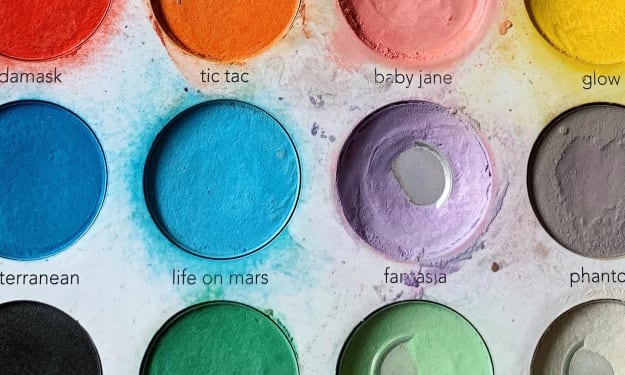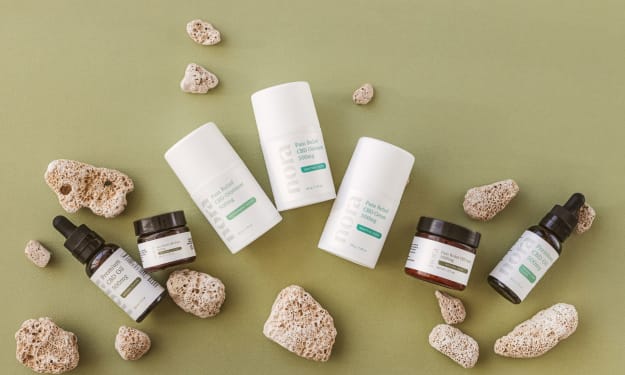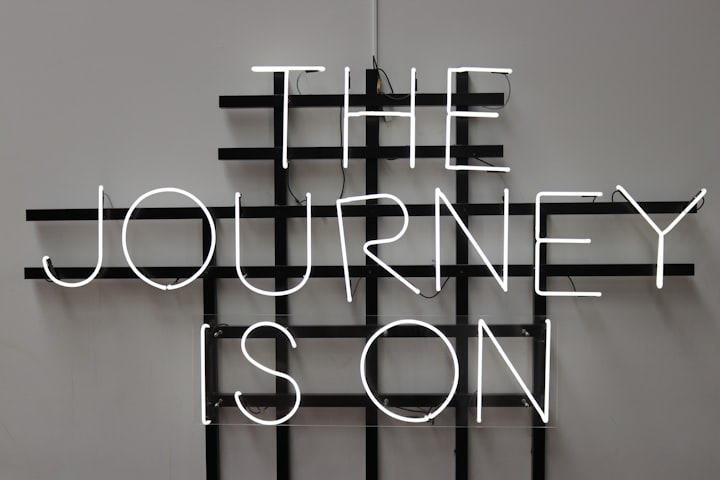How the Beauty Industry Thrives on Anti-Blackness
(TW: for racism, hate speech)

In the first week of June, beauty companies had had a lot to say. Titans of the makeup industry like NYX, Ulta, Maybelline, and Anastasia Beverly Hills donated sales money towards funds associated with Black Lives Matter and/or George Floyd's family and community. Black owned makeup brands were boosted and promoted among beauty gurus, with YouTubers and professionals alike doing full faces of Fenty and Juvia's Place. Black creators were finally getting their laurels, with features on brands like Sugarpill's Instagram (which has over 2 million followers).
Then silence.
It was like the community just moved on. A few posts here and there on Juneteenth, but other than that it was back to a Kylie Cosmetics release, summer skincare essentials, blah blah blah. It was like a brand could post the racial demographics of their employees and promise to hire more Black people eventually, then consumers would be happy enough, then the brand would move on.
Am I missing something here?
Did it really have to take people dying, did it have to take protests and people calling brands out for them to do something? For them to outwardly say "we support our Black customers and staff"? Were people really just cool with brands like L'Oreal and Jeffree Star Cosmetics now? Because they made a little Instagram post? Um...is everyone else seeing this?
Well guess what. Your favorite brands, the brands everyone thinks are "the most woke" more often than not are actively anti-Black. Guess what else. Your favorite beauty guru or influencer was/is outwardly racist as an adult, and a few notes app apologies don't fix that. That's damage control, babe. The beauty industry capitalizes everyday off of Black creators and consumers, stealing their ideas and designs, just to gain stanworthy status because they reposted a black square.
Brands are the most obvious culprits here. Most notably, though, is when Munroe Bergdorf was fired from L'Oreal in 2017 for speaking out against racism and white supremacy. "You...threw me to the wolves...I said just yesterday that it would only be a matter of time before RACIST AF brands saw a window of PR opportunity to jump on the bandwagon," Munroe posted. L'Oreal has since rehired Munroe, but the company still sells skin bleaching products under their White Perfect line, which can be bought both overseas and in the US (for a hefty shipping fee).
Yet smaller indie brands have been outed for racist staff members and campaigns as well. Milk Makeup for example has a history of racism and anti-Blackness at their corporate level. Instagram user @edelawithussien wrote about her experience working for Milk in 2017/2018. "I came to Milk Makeup because of its pillars of inclusivity, diversity and unity but it stands for none of that," Edelawit writes. The post goes into detail regarding situations she was put into as a content creator for the brand, such as having to explain to nonBlack interns why Kush mascara being delivered to editors in little baggies reminiscent of a drug exchange was racist "in a time which Black Americans are disproportionately affected by drug offenses..." Edelawit also experienced microaggressions from white employees using AAVE only around her and other Black employees, and she even had to stop a photo shoot with an Islamic Crescent Moon and Star painted on a model's face because the team thought it "looked cool". Milk Makeup's founder responded on June 6th saying that it was "completely against [his] values and those of [the] company". Ten days later, the company made another post listing 5 commitments they would make to themselves and the community to promote inclusivity and anti-Blackness.
It would be stupid to think that experiences of Black people like Munroe and Edelawit are isolated incidents in the beauty industry. According to the World Economic Forum, almost 60% of Black employees felt as though discrimination contributed heavily to them not getting as far ahead as their white peers in the workplace. Imagine the statistics in an industry where most brands only carried 15 different foundation shades until 2015. In an industry where "woke" companies make millions off of skin bleaching products overseas. In an industry where Black creators (specifically Black women and Black LGBTQ individuals) are constantly stepped over and stolen from.
But it's not just brands, as we've seen time and time again. Beauty gurus like Jeffree Star have been continually supported and forgiven by white members of the community, even as his career is almost fundamentally built on racism. Even though it's common knowledge that Jeffree's first (and failed) brand was named Lipstick Nazi, even though he called Jackie Aina a rat and broke, even though there's been dozens of documented instances of him using racial slurs including the n-word. But it's always "Aw but he apologized. We all make mistakes and his palettes are pretty :("
Yeah. Okay.
You don't have to be outwardly saying racial slurs and posing with Confederate flags to be racist, though. James Charles has capitalized off Black aesthetics on numerous occasions, most noteably on the phrase "sister" to address his fans, which was used by Black trans women and drag queens in ball culture for decades before he even existed. I don't see him donating profits to Black trans youth organizations in New York, where the ballroom scene is still very active today. I don't know about you, but I sure as hell don't see it. It's not just James, though. Go to literally any nonBlack YouTuber's channel. It's sis tea slay yas all day. That's AAVE, originated from Black women 99% of the time. Where is your YouTube adsense money going? Is any of it going to them? Is any of it going to organizations or individuals dedicated to protecting Black women and the Black LGBTQ community? I'd love to know.
How many of the creators and makeup artists you follow on Instagram or Twitter actively acknowledge and credit Black creators? The butterfly eye trend was started by black creators, most noteably @honey.dew.helen

Baking and highlighting under the eyes was invented by participants in Black ballroom culture, same with the "editorial" eye looks everyone chalks up to Euphoria. I see Nikita Dragun constantly get credited with making baking, contouring, and color correcting a thing....I mean that's just not true but okay. As a community, we wouldn't have half the looks, trends, or creativity we see everyday if it was not for Black creators and artists. It's simple as that.
So why is it that so many white people, especially white women, jump to defend these often anti-Black brands and people? Why do so many white consumers feel it's okay to look past misogynoir and transmisogyny against Black individuals because of a pretty eyeshadow palette? Just because it doesn't hurt you personally?
I know education and understanding is like a ladder. If the bottom rung is realizing racism is the way that the beauty industry makes a profit, and the top rung is boycotting and significantly hurting the pockets of brands, I can't expect people to jump like, 5 rungs. You'll fall off, and probably not want to get back on that ladder ever again. But as a white woman in this industry, I'm begging my gender peers and race peers to shut up and read. Or watch YouTube videos from Black creatives detailing their experience in this industry. We must be constantly educating ourselves on how we can do better for our clients and the people close to us.
We, as white people, don't get to forgive racists like Jeffree Star. We weren't hurt by his actions, so we can't offer forgiveness. We, as white people, absolutely need to research the trends we see, the origins of products, Black owned brands as alternatives to racist brands, etc. Most importantly, we need to let go of our emotional connection to product. It's a privilege that we get to be sad about not buying an eyeshadow palette, it's a privilege to be learning about the racist past of a brand and not have dealt with it when it was their racist present. All these petty little emotions we feel, these inconveniences to our daily routines, are privileges. It is our duty to stand with Black members of this community and use our privilege, our social capital, and our spending power to demand change.
About the Creator
Lillie Superstar
semi-professional face and hair toucher with a lot to say






Comments
There are no comments for this story
Be the first to respond and start the conversation.